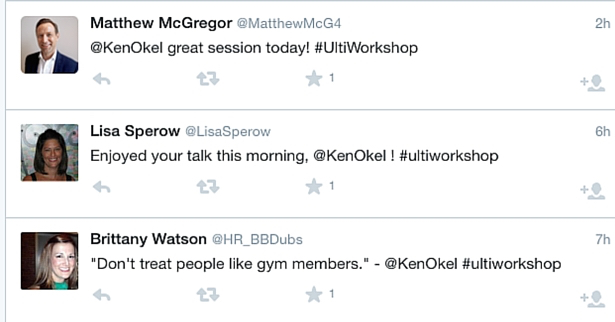 Most leaders struggle with understanding the concept of how you manage your time at work. The common trap is thinking every minute, hour, and day have equal value. Another incorrect belief is that by adding more time to your day, through working extra hours or on the weekend, you’ll get more done.
Most leaders struggle with understanding the concept of how you manage your time at work. The common trap is thinking every minute, hour, and day have equal value. Another incorrect belief is that by adding more time to your day, through working extra hours or on the weekend, you’ll get more done.
Think of your time like gasoline. If you have a gallon of gas, you pretty much know how far you can drive. At a certain point, your car will move no further.
There are things you can do to your car, to maximize the mileage. This includes inflating tires, closing windows to increase vehicle aerodynamics, and removing heavy and unnecessary objects.
Let’s do the same thing with your schedule. These tips are designed to give you an edge. While they won’t give you unlimited time, they can move you further in your career by helping you maximize your productivity on the job:
Discover Your Top Performing Times
For a couple of weeks, you need to track your productivity. When do you feel most effective? It could be early in the day, mid-afternoon, or some other time.
Along those lines, are certain days, like Tuesday, Wednesday, and Thursday, your best days for getting work done?
Now, review your daily activities. What tasks require the most attention and the least?
When you manage your time, you want to match your top performing times with the work that requires the most attention. Save menial tasks for when you perform at your lowest levels.
Protect Your Schedule
While you may not have total control of your schedule, protect those times when you work at your highest levels. It’s okay to block off those periods on your online calendar.
When setting up a meeting, most online meeting requests are based on calendar availability. There’s no consideration of your performance levels. Do you want to be in a meeting, when you’re at a lower level of focus or feel like you’re spending high performing time in a meeting, where you biggest function is to nod?
Manage Your Time with Unavailability
There’s also nothing wrong with putting up a do not disturb sign on your door. One leader has her sign say, “If it’s urgent, then come in.” She’s found this reduces distractions during productive times yet also provides availability.
And while some may feel uncomfortable at first, try turning off your phone and your email notifications for a limited amount of time. It’s unlikely the world will end if you unplug for 30 minutes. By removing these distractions, you remove an excuse that keeps you from getting more done.






